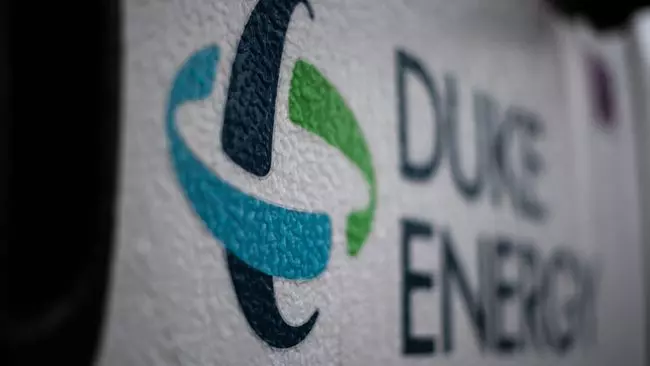
Duke Energy Corporation (NYSE: DUK) (“Duke Energy”) announced the pricing of its offering of $1.5 billion aggregate principal amount of 4.125% convertible senior notes due 2026 (the “convertible notes”) in a private placement under the Securities Act of 1933, as amended (the “Securities Act”). Duke Energy also granted to each of the initial purchasers of the convertible notes an option to purchase, within a 13-day period from, and including, the date on which the convertible notes are first issued, up to an additional $225 million aggregate principal amount of the convertible notes solely to cover over-allotments. The sale of the convertible notes is expected to close on April 6, 2023, subject to customary closing conditions.
Duke Energy expects that the net proceeds from the convertible notes will be approximately $1.476 billion (or $1.698 billion if the initial purchasers exercise their option to purchase additional convertible notes in full), after deducting the initial purchasers’ discounts and commissions and offering expenses payable by Duke Energy. Duke Energy intends to use the net proceeds from the offering of the convertible notes to repay a portion of its commercial paper and for general corporate purposes.
The convertible notes will be senior unsecured obligations of Duke Energy, and will mature on April 15, 2026, unless earlier converted or repurchased in accordance with their terms. The convertible notes will bear interest at a fixed rate of 4.125% per year, payable semiannually in arrears on April 15 and October 15 of each year, beginning on October 15, 2023.
Prior to the close of business on the business day immediately preceding January 15, 2026, the convertible notes will be convertible at the option of the holders only under certain conditions.
On or after January 15, 2026, until the close of business on the second scheduled trading day immediately preceding the maturity date, holders of the convertible notes may convert all or any portion of their convertible notes at their option at any time at the conversion rate then in effect, irrespective of these conditions. Duke Energy will settle conversions of the convertible notes by paying cash up to the aggregate principal amount of the convertible notes to be converted and paying or delivering, as the case may be, cash, shares of its common stock, $0.001 par value per share, or a combination of cash and shares of its common stock, at its election, in respect of the remainder, if any, of its conversion obligation in excess of the aggregate principal amount of the convertible notes being converted.
The conversion rate for the convertible notes will initially be 8.4131 shares of common stock per $1,000 principal amount of convertible notes (equivalent to an initial conversion price of approximately $118.86 per share of common stock). The initial conversion price of the convertible notes represents a premium of approximately 25% over the last reported sale price of Duke Energy’s common stock on the New York Stock Exchange on April 3, 2023. The conversion rate and the corresponding conversion price will be subject to adjustment in some events but will not be adjusted for any accrued and unpaid interest. Duke Energy may not redeem the convertible notes prior to the maturity date.
If Duke Energy undergoes a fundamental change (as defined in the indenture that will govern the convertible notes), subject to certain conditions, holders of the convertible notes may require Duke Energy to repurchase for cash all or any portion of their convertible notes at a repurchase price equal to 100% of the principal amount of the convertible notes to be repurchased, plus accrued and unpaid interest to, but excluding, the fundamental change repurchase date (as defined in the indenture that will govern the convertible notes). In addition, if certain fundamental changes occur, Duke Energy may be required, in certain circumstances, to increase the conversion rate for any convertible notes converted in connection with such fundamental changes by a specified number of shares of its common stock.
The offering is being made to persons reasonably believed to be qualified institutional buyers pursuant to Rule 144A under the Securities Act. Any offers of the convertible notes will be made only by means of a private offering memorandum. None of the convertible notes or any shares of the common stock issuable upon conversion of the convertible notes have been or are expected to be registered under the Securities Act or any state securities laws and, unless so registered, may not be offered or sold in the United States or to U.S. persons except pursuant to an exemption from, or in a transaction not subject to, the registration requirements of the Securities Act and applicable state securities laws.
This news release does not constitute an offer to sell or the solicitation of an offer to buy these securities, nor will there be any sale of these securities in any state or jurisdiction in which such offer, solicitation or sale would be unlawful prior to registration or qualification under the securities laws of any such state or jurisdiction.
Duke Energy
Duke Energy (NYSE: DUK), a Fortune 150 company headquartered in Charlotte, N.C., is one of America’s largest energy holding companies. Its electric utilities serve 8.2 million customers in North Carolina, South Carolina, Florida, Indiana, Ohio and Kentucky, and collectively own 50,000 megawatts of energy capacity. Its natural gas unit serves 1.6 million customers in North Carolina, South Carolina, Tennessee, Ohio and Kentucky. Duke Energy employs 27,600 people.
Forward-Looking Information
This news release includes forward-looking statements within the meaning of Section 21E of the Securities Exchange Act of 1934, as amended. Forward-looking statements are based on management’s beliefs and assumptions and can often be identified by terms and phrases that include “anticipate,” “believe,” “intend,” “estimate,” “expect,” “continue,” “should,” “could,” “may,” “plan,” “project,” “predict,” “will,” “potential,” “forecast,” “target,” “guidance,” “outlook,” or other similar terminology. Various factors may cause actual results to be materially different than the suggested outcomes within forward‑looking statements; accordingly, there is no assurance that such results will be realized. These factors include, but are not limited to: the ability to implement Duke Energy’s business strategy, including Duke Energy’s carbon emission reduction goals; state, federal and foreign legislative and regulatory initiatives, including costs of compliance with existing and future environmental requirements, including those related to climate change, as well as rulings that affect cost and investment recovery or have an impact on rate structures or market prices; the extent and timing of costs and liabilities to comply with federal and state laws, regulations and legal requirements related to coal ash remediation, including amounts for required closure of certain ash impoundments, are uncertain and difficult to estimate; the ability to recover eligible costs, including amounts associated with coal ash impoundment retirement obligations, asset retirement and construction costs related to carbon emissions reductions, and costs related to significant weather events, and to earn an adequate return on investment through rate case proceedings and the regulatory process; the costs of decommissioning nuclear facilities could prove to be more extensive than amounts estimated and all costs may not be fully recoverable through the regulatory process; the impact of extraordinary external events, such as the pandemic health event resulting from COVID-19, and their collateral consequences, including the disruption of global supply chains or the economic activity in Duke Energy’s service territories; costs and effects of legal and administrative proceedings, settlements, investigations and claims; industrial, commercial and residential growth or decline in service territories or customer bases resulting from sustained downturns of the economy, reduced customer usage due to cost pressures from inflation or fuel costs, and the economic health of Duke Energy’s service territories or variations in customer usage patterns, including energy efficiency efforts, natural gas building and appliance electrification, and use of alternative energy sources, such as self-generation and distributed generation technologies; federal and state regulations, laws and other efforts designed to promote and expand the use of energy efficiency measures, natural gas electrification, and distributed generation technologies, such as private solar and battery storage, in Duke Energy service territories could result in a reduced number of customers, excess generation resources as well as stranded costs; advancements in technology; additional competition in electric and natural gas markets and continued industry consolidation; the influence of weather and other natural phenomena on operations, including the economic, operational and other effects of severe storms, hurricanes, droughts, earthquakes and tornadoes, including extreme weather associated with climate change; changing investor, customer and other stakeholder expectations and demands including heightened emphasis on environmental, social and governance concerns and costs related thereto; the ability to successfully operate electric generating facilities and deliver electricity to customers including direct or indirect effects to the company resulting from an incident that affects the U.S. electric grid or generating resources; operational interruptions to Duke Energy’s natural gas distribution and transmission activities; the availability of adequate interstate pipeline transportation capacity and natural gas supply; the impact on facilities and business from a terrorist or other attack, war, vandalism, cybersecurity threats, data security breaches, operational events, information technology failures or other catastrophic events, such as fires, explosions, pandemic health events or other similar occurrences; the inherent risks associated with the operation of nuclear facilities, including environmental, health, safety, regulatory and financial risks, including the financial stability of third-party service providers; the timing and extent of changes in commodity prices and interest rates and the ability to recover such costs through the regulatory process, where appropriate, and their impact on liquidity positions and the value of underlying assets; the results of financing efforts, including the ability to obtain financing on favorable terms, which can be affected by various factors, including credit ratings, interest rate fluctuations, compliance with debt covenants and conditions, an individual utility’s generation mix, and general market and economic conditions; credit ratings of Duke Energy or its subsidiaries may be different from what is expected; declines in the market prices of equity and fixed-income securities and resultant cash funding requirements for defined benefit pension plans, other post-retirement benefit plans and nuclear decommissioning trust funds; construction and development risks associated with the completion of Duke Energy’s or its subsidiaries’ capital investment projects, including risks related to financing, timing and receipt of necessary regulatory approvals, obtaining and complying with terms of permits, meeting construction budgets and schedules and satisfying operating and environmental performance standards, as well as the ability to recover costs from customers in a timely manner, or at all; changes in rules for regional transmission organizations, including changes in rate designs and new and evolving capacity markets, and risks related to obligations created by the default of other participants; the ability to control operation and maintenance costs; the level of creditworthiness of counterparties to transactions; the ability to obtain adequate insurance at acceptable costs; employee workforce factors, including the potential inability to attract and retain key personnel; the ability of Duke Energy’s subsidiaries to pay dividends or distributions to Duke Energy; the performance of projects undertaken by Duke Energy’s nonregulated businesses and the success of efforts to invest in and develop new opportunities, as well as the successful sale of the majority of its commercial renewable energy business; the effect of accounting and reporting pronouncements issued periodically by accounting standard-setting bodies and the Securities and Exchange Commission (the “SEC”); the impact of U.S. tax legislation to Duke Energy’s financial condition, results of operations or cash flows and Duke Energy’s credit ratings; the impacts from potential impairments of goodwill or equity method investment carrying values; asset or business acquisitions and dispositions may not yield the anticipated benefits; and the actions of activist shareholders could disrupt Duke Energy’s operations, impact Duke Energy’s ability to execute on Duke Energy’s business strategy, or cause fluctuations in the trading price of Duke Energy’s common stock.
Additional risks and uncertainties are identified and discussed in Duke Energy’s reports filed with the SEC and are available at the SEC’s website. In light of these risks, uncertainties and assumptions, the events described in the forward-looking statements included or incorporated by reference in this news release might not occur or might occur to a different extent or at a different time than described. Forward-looking statements speak only as of the date they are made and Duke Energy expressly disclaims an obligation to publicly update or revise any forward-looking statements, whether as a result of new information, future events or otherwise.
Source link: https://news.duke-energy.com/










